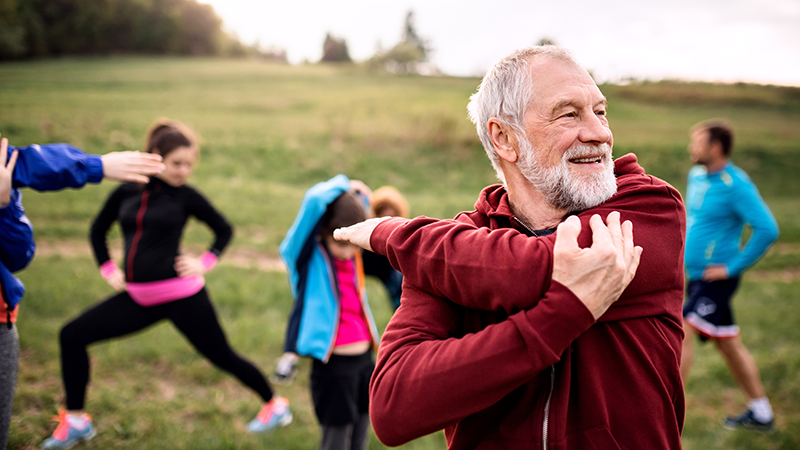We know that effective fueling and exercise can help us achieve weight loss, better quality sleep, enhanced mood, increased muscle mass, increase in joint strength and flexibility, and overall body fat reduction. But regular cardiovascular activity and strength training can affect other physiological conditions that you may have never considered:
- Exercise reduces ADHD symptoms. Exercising is one of the most effective ways to improve concentration, memory, and mood. But did you know it can also reduce the symptoms of ADHD? Drugs such as Ritalin boost the brain’s dopamine, norepinephrine, and serotonin levels to create focus. Prolonged physical exertion sends a message to the brain to release those exact same hormones, but without the negative side effects of the pharmacological interventions.
- Exercise combats fatigue. University of Georgia did a study published in Psychotherapy and Psychosomatic, proving that as little as twenty minutes of cardiovascular activity, three days a week for six weeks combats fatigue. Increasing your heart rate increases blood flow, which carries more oxygen and nutrients to your muscles. The oxidative stress that occurs in muscle cells from exercise can trigger mitochondrial biogenesis,1 producing more adenosine triphosphate (ATP). Tada! More energy.2
- Exercise promotes structure and organization in your life. A regular workout routine keeps you grounded in times of stress and even turmoil. It’s the one healthy thing you can always do for you.
- Exercise can boost confidence. Getting ready for a workout, putting on comfortable, breathable, colorful attire can boost your confidence for the rest of the day. Similar to my teammate Admiral McRaven’s admonishment to “make your bed” every day, doing a positive act toward your optimization first thing every day builds serious momentum power. Donning your “athleisure attire” first thing signifies “I am fit, training is what I do!”3 Don’t underestimate the power of the outfit to help you stay in shape.
- Exercise can soothe post-traumatic stress. Exercise can reduce the symptoms and duration from being stuck in a state of fear and panic due to post Traumatic Stress and other trauma. PTS toggles our nervous system into hyper-arousal, which is immobilizing. Exercise, especially involving bi-lateral movements that engage both arms and legs, can turn that switch off and get the central nervous system functioning normally again. Walking (especially in sand or snow) is an effective crossbody exercise. So is running, swimming, weight training with free weights, martial arts, dancing, hiking, rock climbing, biking, and skiing.4 Combine exercise with the pillars of mental training, proper fueling, sleep, recovery, nature time, and learning new things, and you have a recipe for excellence.
- Exercise reduces the effects of aging. As mentioned, the research is now clear that routine exercise combats memory loss and age-related decline. The same endorphins that make you feel better and increase focus (serotonin, dopamine, and norepinephrine) also stimulate the neuroplastic growth of new brain cells.
- Exercise helps with task switching. Strength training can help improve something called cognitive flexibility, which is your ability to switch between tasks as well as recover resiliently when confronted with a challenge.5
Most of us have bought into the myth that aging comes with cognitive decline and physical weakness. But how you develop lifestyle habits now will have an enormous impact on how the body-brain ages. We can produce new brain cells and improve our mind’s clarity and focus until we die.
One way to do this is to take on daily meditation, along with new learning challenges like chess, ukulele, a foreign language, knitting, or writing. (You can start these things anytime, by the way – even into your hundreds.) New skills, practiced repeatedly, stimulate brain growth.
But your brain also depends on cardiovascular activity to stay mentally acute, and even to grow.6 The “move it or lose it” idiom doesn’t just apply to maintaining a fit and ferocious figure. The six pillars of Uncommon habits introduced earlier will preserve your physical and cognitive skills, protect your gray matter, and produce more brain cells. Honing the six pillars also strengthens your immune system, making you more resistant to pathogens and debilitating injuries.
Doctors, scientists, and the media go on and on nowadays about the benefits of exercising to keep your body and heart healthy, and they’re right. But let’s continue to examine the positive effect that exercise has for the brain.
- For those of you who wake up groggy, exercise can literally clear your head by strengthening neural receptors.
- Activities that require extra coordination and focus, such as learning the salsa, rock climbing, or trail running all stimulate the production of genes that belong to a class of growth factors called brain-derived neurotrophic factor (BDNF) proteins. These stimulate new neuronal connections and neurogenesis.7
- If you’re older and you’re feeling forgetful, regular cardiovascular activity will increase the size of your hippocampi, upping your flexible cognition, navigating skills, and your ability to form and retrieve memories.
- Stress releases cortisol, which hinders neurogenesis. Exercise reverses that process and helps your brain keep growing.
Consistency in your daily physical training is key to maintaining and sharpening your mind. It’s clear how the brain responds to physical fitness activity. In my next post, we’ll look in detail at how it reacts to fueling with different foods.
1 https://www.ncbi.nlm.nih.gov/pmc/articles/PMC3356485/#R50
2 https://www.acefitness.org/education-and-resources/lifestyle/blog/6589/increase-energy-levels-and-cure-fatigue-through-exercise
3 https://www.self.com/story/11-amazing-reasons-to-work-out-that-have-nothing-to-do-with-weight-loss
4 https://www.helpguide.org/articles/ptsd-trauma/ptsd-symptoms-self-help-treatment.htm
5 https://www.self.com/story/11-amazing-reasons-to-work-out-that-have-nothing-to-do-with-weight-loss
6 https://www.ncbi.nlm.nih.gov/pmc/articles/PMC3356485/
7 https://www.helpguide.org/articles/healthy-living/how-to-improve-your-memory.htm


